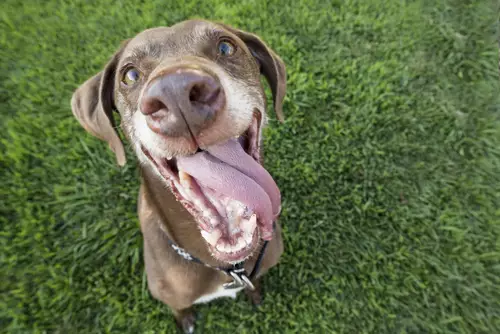If you’re a dog owner or simply a dog enthusiast, you undoubtedly find yourself puzzled by certain behaviors exhibited by our furry companions. Among these, one of the most perplexing and somewhat nauseating habits is coprophagy— the consumption of feces. While this might be an uncomfortable topic for many, it’s essential to understand that this behavior is not as uncommon as one might assume. If your pup indulges in this disturbing practice, know that you’re not alone in your bewilderment.
A recent study conducted at the University of California, Davis reveals that approximately 16% of dog owners report that their dogs engage in this habit. That’s quite a staggering statistic, offering some comfort in knowing that your canine is not an anomaly. Although the reasons behind this behavior can be as varied as they are perplexing, understanding the motives and potential risks associated with it is vital for every dog owner.
A Peek into Canine Ancestry and Behavior
To fathom why dogs might indulge in such repugnant behavior, one has to look back into their ancestral lineage. Dogs, being descendants of wolves, share certain instinctual traits, including some that pertain to their diet and hygiene. Surprisingly, the act of consuming feces may have roots in survival strategies. According to Dr. Benjamin Hart, the lead investigator of the UC Davis study, fresh feces might have offered early canines a source of nutrients while also helping them avoid parasitic infections.
In the wild, it’s essential for animals to dispose of their waste at a safe distance from their dens. However, in cases where animals needed to stay close to home, consuming feces could have been a way to minimize the risk of parasite transmission, as the parasite eggs often take a few days to become infectious. When we apply this understanding to our domesticated dogs today, it becomes evident that coprophagy can be an instinctive behavior rooted in their evolutionary history.
The Variety of Underlying Causes
While the ancestral connection offers one explanation, there are also several contemporary reasons your dog may engage in such behavior. A primary factor could be boredom. Dogs that lack stimulation or activity may turn to this shocking habit out of sheer curiosity or during moments of inactivity. Additionally, stress and anxiety can trigger similar behaviors. If a dog feels neglected or anxious, it might resort to eating feces as a coping mechanism.
Other explanations might involve dietary deficiencies. Some experts hypothesize that dogs may consume feces to supplement missing vitamins or enzymes in their diet. For example, a Vitamin B deficiency can propel some dogs to seek nutrients elsewhere, but this is not a universally accepted cause. Regardless of its origins, the action remains quite troubling for a pet owner.
The Risks of Coprophagy
It would be misleading to disregard the potential risks associated with this behavior. While eating their own feces may not pose significant health threats, consuming feces from other species can be hazardous. The American Kennel Club warns against this practice, emphasizing that your dog could ingest harmful bacteria or parasites through the feces of other animals. What might seem like an innocent indulgence could lead to serious health complications, making it imperative for dog owners to intervene.
Additionally, fecal matter from other animals, especially those with different digestive systems, can introduce potentially dangerous pathogens. Even cat feces can be a source of interest for dogs due to its extraordinary smell, but it can also come with its own set of health risks. As any responsible pet owner knows, it’s essential to monitor your dog for any signs of distress or illness, including vomiting, lethargy, or changes in appetite.
Strategies for Behavioral Modification
If your dog belongs to that concerning 16% demographic, you may be seeking ways to curtail this unwanted habit. Fortunately, there are various strategies you can implement to divert your dog’s attention away from feces consumption. One approach is to consult with a veterinarian, who may recommend certain dietary changes, such as adding more fiber or probiotics to help alleviate the temptation to eat feces.
Training techniques can also be effective. Simple commands and consistent reinforcement can go a long way in teaching your dog appropriate behavior. Keeping your dog on a leash during walks can help you manage them more effectively, ensuring they refrain from exploring any unwanted “snacks.”
Additionally, being mindful of your dog’s environment, providing enriching toys, and maintaining a regular exercise routine can alleviate boredom and stress, two contributing factors to this behavior.
Understanding why dogs engage in coprophagy is vital for any dog owner. This behavior may indeed be perplexing, but with appropriate attention and proactive strategies, it can be managed. After all, when it comes to our beloved canine companions, every effort made toward understanding their behavior amplifies the bond we share with them.


Leave a Reply